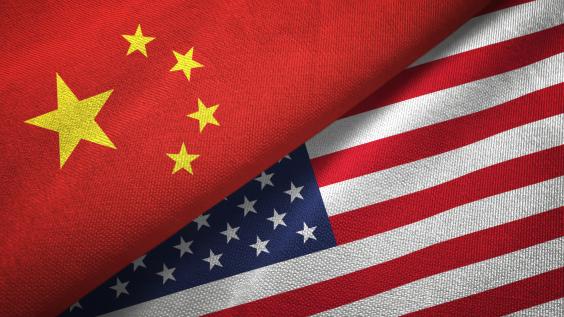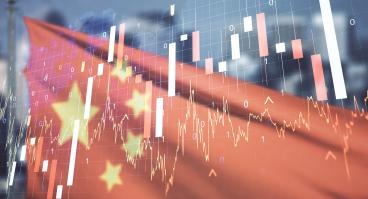Resetting and Reengaging U.S.-China Soft Power Relations

Table of Contents
Author(s)
Share this Publication
- Download PDF
- Print This Publication
- Cite This Publication Copy Citation
Lewis, Steven W. Resetting and Reengaging U.S.-China Soft Power Relations. Policy Brief: Recommendations for the New Administration. 02.03.21. Rice University’s Baker Institute for Public Policy, Houston, Texas.
Tags
This brief is part of a series of policy recommendations for the administration of President Joe Biden. Focusing on a range of important issues facing the country, the briefs are intended to provide decision-makers with relevant and effective ideas for addressing domestic and foreign policy priorities. View the entire series at www.bakerinstitute.org/recommendations-2021.
When it comes to foreign policy, the Biden administration will undoubtedly be judged largely by its successes, and failures, in transforming the United States’ fundamentally internecine relationship with China—the world’s second-largest economy, a regional superpower in Asia, and a sophisticated competitor for resources, technology, and influence around the world. In military affairs, we are all but in a U.S.-USSR-style cold war, from the Korean Peninsula to the East China and South China seas and then throughout the rest of Asia and the Pacific. China’s increased military aggression against bordering countries, such as India, has motivated once-unthinkable talk of deeper defense cooperation with the U.S., while America’s traditional strategic allies in the Indo-Pacific—notably Australia, Japan, and South Korea—have come to realize that indiscriminately building and maintaining close economic ties to the Chinese market will only further expose them to bullying by the Chinese Communist Party (CCP).
The dire nature of the situation can be seen most clearly in China’s very public treatment of American allies Australia and Canada, whose economies have seen decades of unprecedented economic growth largely through resource exports to a growing Chinese economy. China is currently boycotting Australian goods to protest criticism of its handling of the COVID-19 pandemic, and all but holding former Canadian diplomats as hostages until the U.S. government dispute with Huawai is resolved. The centralization of political authority under CCP General Secretary Xi Jinping has accelerated in reaction to pro-democracy protests in the Hong Kong Special Autonomous Region, the reelection of anti-Communist leader Tsai Ing-wen in Taiwan, religious and ethnic protests in China—especially in the Xinjiang Autonomous Region of Western China—and increased public resentment over a cover-up of government mistakes made in response to the coronavirus outbreak in Wuhan. If the global economy is to recover, clearly the United States and China need to reestablish mutually beneficial economic relations, but it is equally clear that we cannot return to the “business as usual” of allowing unrestrained Chinese government influence on our economy, our democracy, or those of our allies and friends.
The Biden administration’s experienced foreign policy experts are already discussing how to effect a transformed U.S.-China relationship. It seems likely that the Trump administration’s personal ties and failed direct negotiations with Xi Jinping’s lieutenants will be replaced by a return to a full-court press by diplomatic, economic, and military officials, including something like the reestablishment of the Strategic and Economic Dialogues conducted under the Bush and Obama administrations. The key task for President Biden will be to reestablish these levels of frequent negotiation between the two governments in order to restore cooperation on issues that require it (such as a global pandemic response or peace on the Korean Peninsula) and yet maintain some of the few successes achieved through President Trump’s scattershot and unfocused confrontation. Ironically, although the Trump administration opposed the Trans-Pacific Partnership (TPP) and multilateral free trade relations with China and other countries in Asia, and visibly snubbed its traditional strategic allies in the region, our economic partners and allies have rallied themselves to both implement the TPP and coordinate a response to Chinese military and intelligence aggression. In these affairs, the Biden administration can make potentially great achievements by merely coordinating more with allies who have been ignored and by joining regional free trade agreements that will open markets to American exports throughout the region and in addition protect American intellectual property rights to a degree not seen before.
The Biden administration, however, faces a much harder and more complex task in restoring confidence in U.S.-China education ties and research cooperation, and in opposing Chinese government influence in education and other “soft power” issues.
Proposal 1
In past Strategic and Economic Dialogues between the U.S. and China, education ties, research, and creative economies were always the bastard children at the feast. The United States can no longer afford to treat these as a sideshow in negotiations with the Chinese government, for they not only represent an increasingly large part of the future U.S. economy—as we continue to replace manufacturing jobs with service sector jobs—they are also uniquely vulnerable to unregulated competition with Chinese universities, technology and media firms, and the entertainment and communications industries. All of these sectors are largely excluded from World Trade Organization rules, and although they are very autonomous and driven by private investment and intense competition for innovation in the United States and other Organisation for Economic Co-operation and Development (OECD) countries, the CCP alternates between a heavy hand—large investments by state banks and investment funds when it believes such companies can be competitive globally, and billions of dollars in annual payments to leading research universities—and a much-less visible manipulating hand—backdoor control over shares in nominally private technology firms, such as Huawei, that seek to attract foreign investors through public share offerings or, in the case of start-ups, angel investors from Silicon Valley. Because the Chinese military and intelligence services also rely on such influence to acquire advanced foreign technology, and intelligence on political and economic planning by economic competitors, these “soft power” parts of American ties to China must be included in some form within the larger Strategic and Economic Dialogue, however the Biden administration can configure it.
In order to make sure these very valuable parts of the future American economy are not ignored within the broader talks, however, the Biden administration must consider tasking a senior official capable of negotiating directly with a comparably senior CCP Politburo member. In the past, as influential secretaries of state, defense, and treasury have met with their nominal ministerial Chinese counterparts, they have often found themselves negotiating with nonPolitburo-level leaders. As the Baker Institute has recommended in the past, particularly in energy policy relations with China, introducing negotiations through the Office of the Vice President is a potentially very useful way to demand China bring top negotiators to the table. In the case of protecting the interests and security of our future economy— the education, research, and creative industries—Vice President Kamala Harris will be particularly qualified to understand the stakes involved for American actors, since California universities, laboratories, and technology and creative industry firms are the undisputed leaders in this part of our economy. Similarly, her background in criminal prosecution should help prepare her for tough negotiations on such issues as extradition, fraud, property theft, and money laundering. Without a high-level administration official capable of directly negotiating with the next generation of Politburo-level Chinese officials, U.S.-China ties in these areas could easily succumb to the isolationism and technological protectionism of senators and representatives in Congress, or to the irrefutably destructive influence on universities, laboratories, and technology companies already suffered by Australian universities at the hands of Chinese government actors.
Proposal 2
America’s education, research, and creative industries have long benefitted from relative autonomy from government influence. In recent years, the Trump administration and individual senators tried to restrict the flow of students, researchers, and cultural exchanges between institutions in the U.S. and China. Although such efforts have exposed an undetermined degree of vulnerability of American universities to Chinese government espionage, they also threaten to deprive American universities of an invaluable source of tuition, future researchers (the great majority of foreign graduate students, including those from China, stay in the U.S., with many becoming American citizens), and the global competition that drives our own technological and creative industry innovation. The Biden administration should not make the same mistake of jumping in without understanding the true extent of potential threats to these critical parts of our economy and society.
The Chinese government has most successfully gained influence by making strategic investments to education and research institutions facing budget cuts by American state governments and federal research grant authorities. Following the recommendations outlined in briefs by the Baker Institute’s Science and Technology Policy Program under Dr. Neal Lane,1 America needs to restore its funding of basic research through the National Science Foundation (NSF) and National Institutes of Health (NIH) in order to keep up with greater investments made by the Chinese government. Moreover, there needs to be increased sharing of information about ties between Chinese and American universities, and it should be accomplished through the Department of Education. Currently, American universities and researchers are cautious about sharing this information with the only federal agency collecting it systematically: the Department of Justice. Such information should be comprehensive and beneficial for the universities and researchers themselves, and thus not designed solely to facilitate criminal investigations. Finally, the Biden administration should facilitate a public dialogue between the companies and firms that host much of the social lives of future generations of Americans (and Chinese): the social media, sports, online gaming, animation fandoms, and underground creative economies (including even pornography) that thrive on tens of billions of dollars of sales to (and countless hours spent by) young Americans. As research from the Baker Institute China Studies Program2 and others has revealed, the Chinese Communist Party’s fear of organized protest by young Chinese in particular has led it to create complex AI censorship algorithms and hire hordes of wumao (trolls) as surrogates to influence, cajole, and even intimidate young people all around the world who engage with Chinese youth in cyberspace.
The Biden administration should have a public dialogue with American education, research, and creative industry stakeholders to discern the true extent of such Chinese government influence, and then create an appropriate administrative organizational response, followed by incorporation within the larger strategic negotiations between the American and Chinese governments. Without such a dialogue, America’s youth and this thriving creative industry will be driven further underground in an effort to avoid regulation and censorship. This will not only alienate young Americans from their government, including participation in democratic government, and stifle a thriving and lucrative creative “gig” economy, but expose them to the harmful influence of Chinese government censors and attacks by their nationalistic surrogates online.
Endnotes
1. See American Academy of Arts & Sciences and Rice University’s Baker Institute for Public Policy, The Perils of Complacency: America at a Tipping Point in Science & Engineering (Cambridge: American Academy of Arts & Sciences, 2020), https://www.bakerinstitute.org/research/perils-complacency-america-tipping-point-science-engineering/; see also American Academy of Arts & Sciences, Restoring the Foundation: The Vital Role of Research in Preserving the American Dream, (Cambridge: American Academy of Arts & Sciences, 2014), https://www.amacad.org/publication/restoring-foundation-vital-role-research-preserving-american-dream.
2. See Brandon A. Zheng, “Streamers, Virtual Nationalists and Soft Power: China vs. the World?” Baker Institute Blog, October 30, 2020, https://bakerinstituteblog.blogs.rice.edu/2020/10/30/12454/.
This material may be quoted or reproduced without prior permission, provided appropriate credit is given to the author and Rice University’s Baker Institute for Public Policy. The views expressed herein are those of the individual author(s), and do not necessarily represent the views of Rice University’s Baker Institute for Public Policy.



